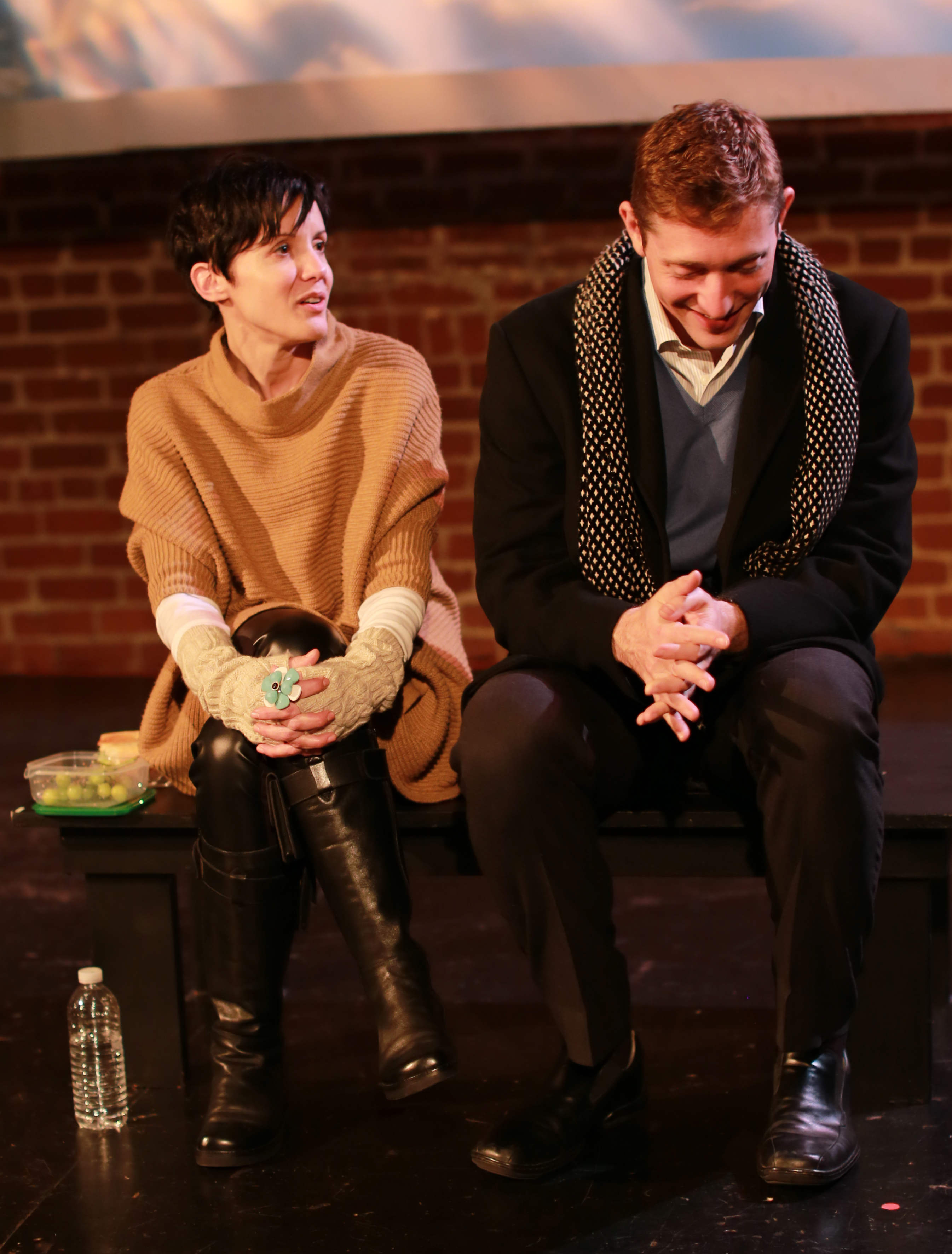Theater Review: ‘The Grand Irrationality’

The Grand Irrationality
Directed by John PleshetteThe Lost Studio




By Daily Bruin
Jan. 14, 2013 12:54 a.m.
Convincing women to buy a flavored alcoholic drink because it is their destiny doesn’t seem like a very effective advertising pitch, yet it works wonders for character Guy Proud’s career and love life.
Performed in a quaint little theater tucked away up a staircase off La Brea street, The Lost Studio brings Britain’s wry humor to Los Angeles with the world premiere of “The Grand Irrationality.”
Although it seemed like British playwright Jemma Kennedy was trying a little too hard to make an allegoric, meaningful play out of what she has said was an outlet for her revenge against some guy who dumped her, the play was charming, well-performed and provided for quite a few chuckles throughout the night.
The title of “The Grand Irrationality” alludes to the astrological anomaly that occurs when the planets are out of alignment and nothing adds up, creating a sort of chaos, which perfectly parallels Guy’s (Gregory Marcel) journey through the play. Guy toys with mixing his professional career with his sexual life, all while coping with the baggage of a dreadfully dysfunctional family.
The play opens with the song “The Age of Aquarius” playing (the first of many astrological references to come) as the lights go up on a scene of Guy, an attractive young advertising director, and his client Nina (Kirsten Kollender) on a lunch meeting that feels a little too much like a date.
Actor Marcel is phenomenally charming right off the bat, and almost steals the show with his pathetically whiny characteristics and slyly seductive half-smile.
It instantly becomes obvious the two are going to become sexually involved as Nina flirtatiously pitches her new line of alcoholic beverages targeted specifically for women. It seems like the “date” is going well until Guy’s postnatally depressed sister, Rose (Mina Badie), comes barging in, pushing a crying baby in a stroller and completely crushing any chance Guy has at bringing Nina home.
Exposing the relatability of a woman who is on the verge of killing her baby isn’t easy, but Badie pulls off this sniffling sister with such a subtle honestly that it could just leave the women in the audience fearing for their own sanity after giving birth.
Every character is burdened with some humanizing, cringe-worthy character flaw, making them easily relatable. Members of the audience laughed along, maybe because they could see themselves up on stage with the actors, making the exact same mistakes in their lives.
Nina is the typical uptight working girl, defensive and clingy in her nature. Murray (Peter Elbing), Guy and Rose’s father, is snarky and belligerent, exposing the trauma he went through after the death of his alcoholic wife.
Vivienne (Bess Meyer), the cute French charity worker who lives in Murray’s building, is self-righteous and free-spirited.
Even charming Guy is overly paranoid, and seems to have major commitment issues. Throwing all of these characters into a pot certainly provides for an interesting plot concoction ridden with conflict.
The plot is aided by an ingeniously simple and effective set created by sliding wooden frames that are made into giant canvases with different colored fabrics stretched over them. The canvases were then moved back and forth into different configurations by the actors throughout the play, creating various settings and in some instances even a pseudo-proscenium arch (an arch that frames a stage, separating it from the audience).
The costuming by costume designer Esther Rydell was also a highlight of the show. Each of the characters had multiple outfit changes complete with an extraordinary attention to accessories, down to the rings on their fingers that represented and sculpted these characters into living, breathing people. The juxtaposition of Nina’s gorgeous, tailored work coat in pristine condition and Rose’s bedraggled, oversized T-shirts and sloppy ensemble spoke wonders for the contrast in their character traits.
Unfortunately a few of the performances fell short of the others. Meyer’s French accent was questionable, and she seemed a little stiff at times, making her transcendence into the oh-so-desirable, cliched French girl a little unbelievable. And Kollender’s American working girl façade seemed over-acted. It was easy to see the script in one’s head when listening to her deliver her lines. Perhaps both women were just overshadowed by Marcel’s natural stage presence and level of effortless comfort embodying the character of Guy.
The transitions between scenes were also a little long and had this weird abrasive trance music playing that added absolutely nothing to the progression of the story.
Despite a few pitfalls that almost any world premiere will experience, the success of “The Grand Irrationality” can be summed up in a few questions:
Is this play funny? Yes. Will Kennedy’s outlet for revenge stand the test of time and become a classic for the ages? Probably not. Is it worth seeing anyway? Most definitely.
– Ella Pravetz
Email Pravetz at [email protected]


